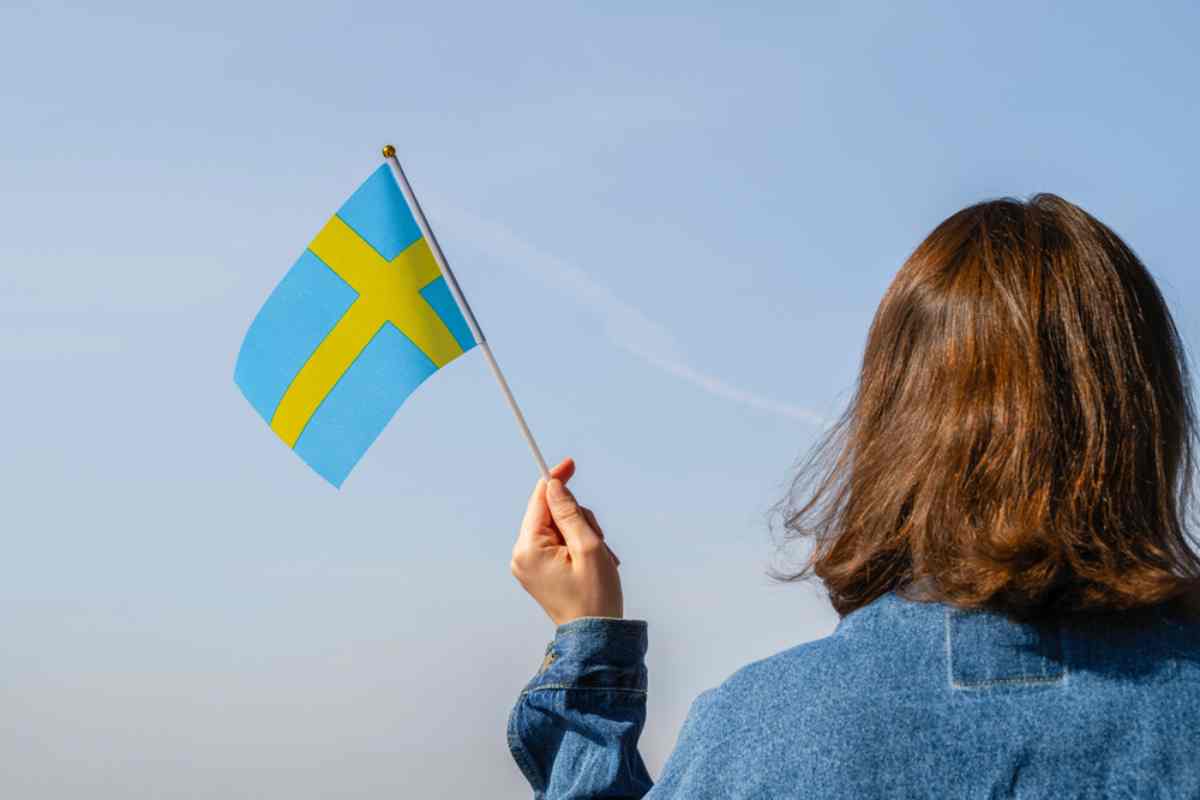Sweden, known for its striking landscapes and progressive society, is equally remarkable for its people. Swedish traits are a tapestry of cultural nuances, social norms, and a rich historical lineage. As we journey through the essence of Swedish culture, we delve into what makes the Swedes a fascinating community—from their lifestyle to the subtleties of their interpersonal conduct.
Understanding the Essence of Swedish Culture
When traveling to Sweden, you'll soon realize that Swedish culture is a unique blend of ancient traditions and modern innovations. Historical and cultural factors have shaped Swedish traits, creating a society that values community, equality, and individuality. The country's long-standing history, from its Viking roots to its current democratic governance, reflects in the collective character of its people.
Core Values and Beliefs of Swedes
Sweden, a nation characterized by its stunning landscapes and rich history, is equally defined by the unique traits of its people. To understand the essence of Swedish culture, it's crucial to delve into the historical and cultural factors that have shaped the distinct characteristics exhibited by the Swedes.

Lagom: The Swedish Concept of Balance and Moderation
At the core of Swedish traits is the concept of lagom—a commitment to balance and moderation in all aspects of life. Lagom is reflected in the Swedish approach to work, relationships, and even in the design of their homes. It's about finding the middle ground, avoiding extremes, and fostering a sense of harmony.
Lagom, which can be translated to "just the right amount," is a guiding principle in Swedish life and an essential Swedish trait. It influences everything from culinary practices to environmental policies, reflecting a preference for balance and sustainability over excess and extravagance.
Jantelagen: The Law of Jante
Jantelagen, the Law of Jante, is another crucial element shaping Swedish traits and behavior. This cultural code emphasizes humility, group solidarity, and discourages individual achievements that may set someone apart. Understanding Jantelagen is key to grasping the Swedish aversion to boasting or standing out.
Originating from Denmark and popularized by Danish-Norwegian author Aksel Sandemose in his novel "A Fugitive Crosses His Tracks," Jantelagen reflects a set of social norms that prioritize humility, egalitarianism, and collective well-being.
Jantelagen is a social ethos that downplays individual achievement and emphasizes the collective. While its impact is debated, it's believed to foster a sense of equality and discourage boastfulness in Swedish society.
Jantelagen is encapsulated in a set of ten principles that outline the expected social behavior within a community. While not a formal law, these principles serve as an unwritten code of conduct that influences interpersonal dynamics in Swedish culture.
- You're not to think you are anything special.
- You're not to think you are as good as we are.
- You're not to think you are smarter than we are.
- You're not to convince yourself that you are better than we are.
- You're not to think you know more than we do.
- You're not to think you are more important than we are.
- You're not to think you are good at anything.
- You're not to laugh at us.
- You're not to think anyone cares about you.
- You're not to think you can teach us anything.

The essence of Jantelagen lies in discouraging individualism and promoting a sense of collective identity and equality. While these principles may seem restrictive, they are not necessarily rigidly enforced rules. Instead, they represent an underlying social agreement that subtly influences behavior and expectations.
Jantelagen can be both a unifying force and a potential source of tension. On one hand, it fosters a sense of community and shared responsibility. On the other, it may discourage individuals from standing out, expressing ambition, or celebrating personal achievements openly.
Communication and Social Etiquette in Sweden
Directness and Honesty in Swedish Communication
A fact about Swedish trait is that they are known for their direct and honest communication style. They value straightforwardness and clarity in conversations, whether in personal discussions or business negotiations, which is reflected in their day-to-day interactions.
Swedes value directness and honesty in communication. Small talk may be minimal, and Swedes appreciate straightforwardness. This cultural aspect plays a role in both professional and personal interactions.
Politeness and Respect in Swedish Social Interactions
Politeness and respect are integral to Swedish social interactions. Greetings are often accompanied by a firm handshake, and personal space is valued. Understanding these customs contributes to a positive experience in social situations.
Swedish customs and etiquette are rooted in respect and consideration. Greetings are typically reserved but friendly, and there's an unspoken respect for personal space and silence, particularly evident in public places like trains or buses.

Swedish Work Ethic and Lifestyle
The Swedish Emphasis on Work-Life Balance
The concept of "folkhemmet" underlines the Swedish work ethic, emphasizing a healthy work-life balance. Swedes often have shorter work hours and more vacation days compared to many other nations. This balance contributes to overall life satisfaction.
Sweden is renowned for promoting a healthy work-life balance. The concept of "folkhemmet" or "the people's home" underscores this, advocating for welfare and wellbeing for all citizens, which is evident in their generous parental leave policies and workplace flexibility.
Paid vacation is a crucial aspect of the Swedish work-life balance equation. It is common for Swedes to take a consecutive four-week vacation during the summer months, known as "semester." This cultural norm extends beyond individual preferences; it's deeply ingrained in the workplace culture, where colleagues and superiors respect and support each other's time off.
Swedes, on average, work fewer hours compared to many other developed countries. The standard workweek is typically 40 hours, and there is a strong emphasis on punctuality and efficiency during working hours. However, what sets Sweden apart is the commitment to flexibility. Many employers actively encourage practices such as flexible working hours, remote work, and part-time arrangements.

Outdoor Activities and Connection to Nature
Outdoor activities like hiking, skiing, and camping are integral to Swedish lifestyle. This connection fosters a sense of well-being and aligns with Sweden's commitment to environmental sustainability.
Swedes have a profound connection with nature, often engaging in outdoor activities such as hiking, cycling, and skiing. This love for nature is deeply ingrained in the Swedish way of life, promoting physical health and mental well-being.
Swedish Cuisine and Gastronomy
Fresh, Seasonal Ingredients and Simple Flavors
Swedish cuisine is characterized by a focus on fresh, seasonal ingredients and simple, flavorful dishes. Locally sourced produce is central to Swedish cooking, reflecting a commitment to sustainability.
Swedish cuisine is a testament to the country's affinity for fresh, local produce. Meals are often made with simple, yet high-quality ingredients that reflect the country's seasonal changes and culinary heritage.
Iconic Swedish Dishes and Delicacies
Sweden offers a delectable array of traditional dishes, such as the renowned smörgåsbord, hearty meatballs, and the cherished coffee break known as fika. These culinary traditions are not just about sustenance but are a way to bring people together.

Swedish Language and Linguistic Quirks
Swedish Language Basics and Pronunciation
The Swedish language, with its unique sounds and gender system, adds another layer to understanding Swedish traits. Basic pronunciation and common phrases provide a glimpse into linguistic nuances.
Swedish pronunciation holds distinctive features that may intrigue language enthusiasts. The melodious intonation and the presence of unique sounds, such as the sj-sound (resembling the English 'sh'), contribute to the distinct musicality of spoken Swedish.
While the Swedish language may seem daunting at first, mastering a few basic phrases can enhance any visitor's experience. Understanding the melodic pronunciation can help travelers connect more deeply with the local culture.
Unique Aspects of the Swedish Language
The Swedish language has its peculiarities, including a gender system and sounds not found in English. These linguistic traits offer a window into the Swedish traits and psyche, showcasing the nation’s love for simplicity and functionality.
In addition to pronunciation, the Swedish language employs a gender system, like many other Germanic languages. Nouns are categorized as either en-words (common gender) or ett-words (neuter gender), impacting the choice of articles and adjectives. While this might present a learning curve for newcomers, it reflects a grammatical structure deeply ingrained in the language's roots.

A standout feature of the Swedish language is the use of the gender-neutral pronoun 'hen.' In contrast to 'han' (he) and 'hon' (she), 'hen' is employed when the gender of the person is unknown, irrelevant, or when the individual identifies outside the traditional gender binary.
The introduction of 'hen' sparked discourse and marked a conscious effort to challenge gender norms and foster a more inclusive linguistic environment. Its adoption aligns with Sweden's broader societal commitment to equality and dismantling gender stereotypes.
Get to Know the Swedes!
The collective traits of the Swedish people are a reflection of a society that cherishes moderation, honesty, and a connection to nature. Whether you're interacting with locals, sampling the cuisine, or exploring the great outdoors, these characteristics are evident.
For those looking to immerse themselves in Swedish life, renting a caravan from Campervan Sweden provides the freedom to traverse this remarkable country at your own pace. And as you plan your visit, gain further insight into Sweden’s fascinating culture and customs at Campervan Sweden’s blog.


 By
By








